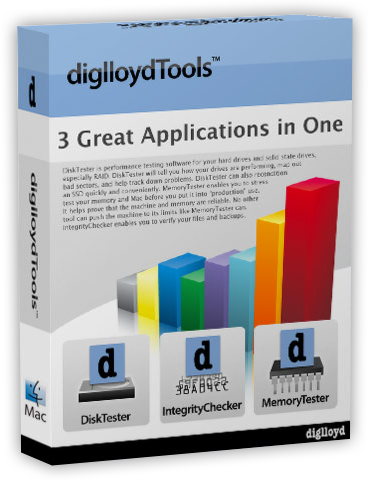macOS High Sierra: Apple’s Technote on APFS is Both Confusing and Possibly Incorrect
The only serious feature in macOS High Sierra is APFS. Indeed, APFS is the most significant change in many years to macOS. There are going to be issues.
MPG reiterates its recommendation that professionals and those with important work to do not install macOS High Sierra for at least 6 months.
Apple has published a technote Prepare for APFS in macOS High Sierra. Most of it is straightforward, but from what I can tell, no engineer ever reviewed it. I say this because the terminology is so odd that I have to interpret it and make assumptions to try to understand it.
The problematic description:
APFS compatibility
Devices formatted as Mac OS Extended (HFS+) can be read from and written to by devices formatted as APFS.
[MPG: this makes NO SENSE at all, an SSD "device" does not read another SSD. Nor is it even relevant; separate file systems are separate file systems that do not interact]Devices formatted as APFS can be read from and written to by: Other devices formatted as APFS Devices formatted as Mac OS Extended, if using macOS High Sierra.
[MPG: devices do not read other devices, macOS reads and writes to storage. WORSE, this seems to imply that a device can be simultaneously formatted as APFS and Mac OS Extended, a nonsensical statement]For example, a USB storage device formatted as APFS can be read by a Mac using High Sierra, but not by a Mac using Sierra or earlier.
[MPG: this makes sense (macOS reads file systems not "devices" ), but is very disappointing if true]
If this is the kind of documentation we are going to get from Apple, it’s scary as to its poor quality and what it implies for APFS itself. This technote is so confusingly phrased that I have trouble understanding it. It makes bizarre statements about devices reading devices, which makes no sense: macOS controls and coordinates I/O across devices.
My guess is that the file system team is in overdrive mode trying to fix APFS bugs before the calendar-driven release of macOS High Sierra—oops it’s too late because it has gone golden master now. I say that because no one on the engineering team seems to have had the time to read this horribly confusing and possibly incorrect technote, or at least not to have cared enough to ask the tech writer to un-confuse it and to address its omissions. But that’s the job of management—to make sure that sort of thing happens—so what does that say about the state of readiness to ship? With Apple, “ship ready” is just an X on a day on the calendar: when the iPhone train rolls, anything in the way gets crushed.
The technote also suffers from its omissions:
- What about partitioning? Can a drive have both APFS and Mac OS Extended partitions?
- Will my partitioned boot drive SSD will be converted to APFS, damaged or reformatted, or what exactly?
- To point out that Fusion drives will not be converted and get no benefit from APFS, i.e., Apple sold a bill of goods regarding performance gains to those buying Fusion setups and now chooses not to support APFS with Fusion setups.
- Will users with BootCamp on their boot SSD now be bereft of BootCamp support, since macOS High Sierra forcibly converts SSDs to APFS, which does not support BootCamp (see below)?
- Whether hard drives will be faster or slower or the same with APFS (probably slower and I wonder about RAID in particular).
The technote might also be incorrect because one reader already reports that macOS Sierra in fact does read APFS. MPG has not installed macOS High Sierra and cannot confirm this as yet.
I deem this technote incompetent—readers can make their own call on that, but what does it say if incompetence is considered OK for the most critical OS feature in years?
I’ll make a stab at translating the above mess, for which I have to make some assumption:
APFS compatibility (attempted translation)
Devices formatted as Mac OS Extended (HFS+) can co-exist with devices formatted as APFS on macOS High Sierra.
We tech writers at Apple aren’t sure yet if devices can be partitioned as having APFS and Mac OS Extended Partitions, so we aren’t going to talk about it here.
An external SSD or hard drive formatted with APFS can be read by a Mac using High Sierra, but not by a Mac using Sierra or earlier.
If the last point is correct, this presents a serious compatibility headache for many ordinary users (old laptop and new desktop or vice versa, one running an older macOS), let alone corporations or work groups.
Boot Camp support
Apple has stated that SSDs will be forcibly converted to APFS upon installing macOS High Sierra. That’s right—no choice in the matter for users.
The technote implies yet more Apple disrespect for users a la Final Cut Pro, e.g., breaking Boot Camp support, in effect:
APFS and Boot Camp
Boot Camp doesn't read from or write to APFS-formatted volumes, but is compatible with High Sierra.
If this note is correct, then it won’t be possible to use BootCamp any longer on those SSDs, because the boot drive will now be APFS, and BootCamp cannot work with APFS.
Or does it mean that the BootCamp partition remains as-is and BootCamp continues to run just fine, excepting not being able to access anything on the macOS boot drive (or other APFS volumes), which might make BootCamp useless for some users. At the least it presents a loss of functionality for some users.
Apple has gone about this the worst possible way. This is the way it should have been done:
- Roll video codec support into macOS Sierra in a 10.12.7 release.
- Add support for APFS in a macOS Sierra 10.12.8 release. Purely an option. Let this 'bake' for 6 months.
- Release macOS High Sierra 6-9 months from now with the desired forced conversions, support for Boot Camp, etc.
MPG’s view is that Apple’s calendar-driven releases result in extremely poor judgment by Apple management (users are disrespected in various ways), and that rushed development that leads to Apple Core Rot by the mandate to ship by a fixed data, bugs be damned.
MPG reiterates its recommendation that professionals and those with important work to do not install macOS High Sierra for at least 6 months. Clearly Apple is kicking macOS High Sierra out the door with serious limitations, and that almost certainly means uncorrected bugs that users are supposed to find by painful experience.
Don H writes:
Another data point on the limitations of High Sierra upon release: I installed the High Sierra Golden Master on a test machine (which took about an hour to convert the internal SSD from HFS+ to APFS) and so far no problems in regards to that process. However, one of the first things I tried was to format a bare external HDD to APFS and then use it for a Time Machine backup. One might think that APFS would be ideal for incremental backups because of its snapshot capability.
When I selected the external disk in the Time Machine preference I got a panel telling me the disk format (APFS) was not compatible and it would ‘erase’ the disk if I proceeded. Since it was a blank disk anyway I accepted and then after an hour it completed the first Time Machine backup. When I then checked Disk Utility I discovered that it had been re-formatted back to HFS+ before performing the backup. To confirm this I tried again with a second disk, being very careful at each step from initial format to APFS (and verifying the format) to selecting the disk in the Time Machine prefs, and sure enough it too was reformatted back to HFS+. So we’ve been waiting all these years for a new file system (which doesn’t even include user data integrity checks) for this?
I assume Apple will eventually implement Time Machine using APFS, and *maybe* add data integrity later if they haven’t painted themselves into a corner at the foundational design, but for now there doesn’t seem to be much benefit for the user with High Sierra. But at least we’ll get animated poop emojis!
MPG: this is the half-baked situation I more or less expected—ship by calendar, not by quality. A lot of bugs might pop up in APFS, and there might be data loss scenarios if history is any guide.
Kees R writes:
I was reading on the apple website on High Sierra and found the devices writing to other devices strange and confusing, then decided to find out if Lloyd Chambers also thought so . . . . Well, I will follow your advise and not upgrade for the time to come, although I have to deal with an annoying error in Preview’s PDF kit which has been corrected in High Sierra (I was told). But the mess to be expected from APFS seems a far larger problem.
MPG: most users are likely to have no issues with APFS, at least that’s a good assumption. Most users have systems with a single drive and an SSD or Fusion drive. They don’t run RAID, don’t user pro software, etc. My advice is directed at those who rely on their Macs for getting work done—the risk is not worth it until the dust settles a few months out (at least), so that if issues arrives the 2nd or 3rd minor update would hopefully fix them.

 diglloydTools™
diglloydTools™











